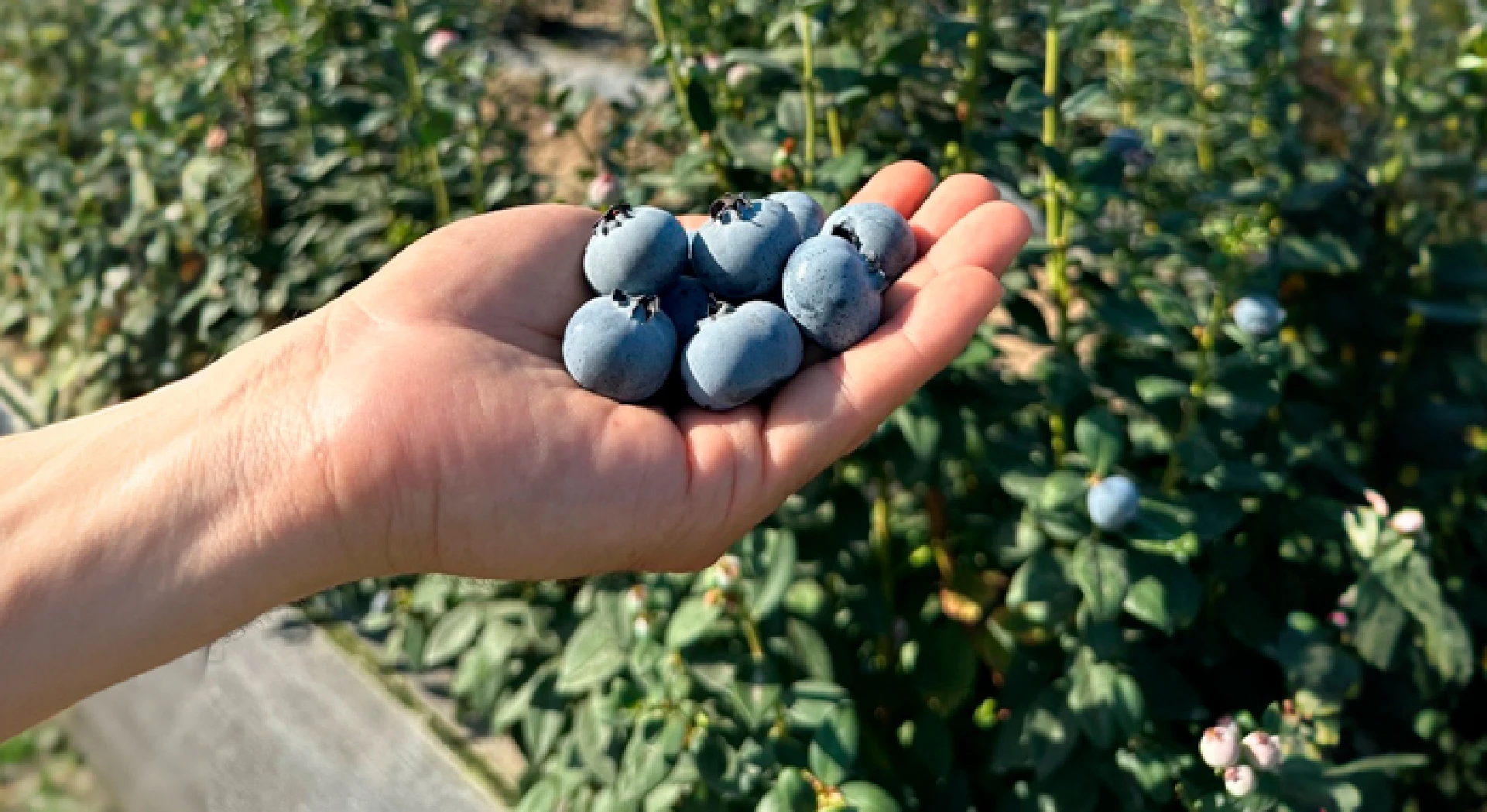Along a dirt road off the Dubai-Al Ain Road, in one of the greenest regions of the UAE, lies a sprawling farm that is home to some of the tastiest berry selections.
Bumblebees imported from Europe help pollinate thousands of berry bushes at the Al Foah farm in Al Ain, with around 1,500 bees per hectare working frantically between the planting and harvesting months.
The farm, owned and operated by Elite Agro Holding, conducts local production of some of nature's best superfoods, such as raspberries, blackberries and strawberries. But it also holds the title of being the only enterprise in the country to grow blueberries.
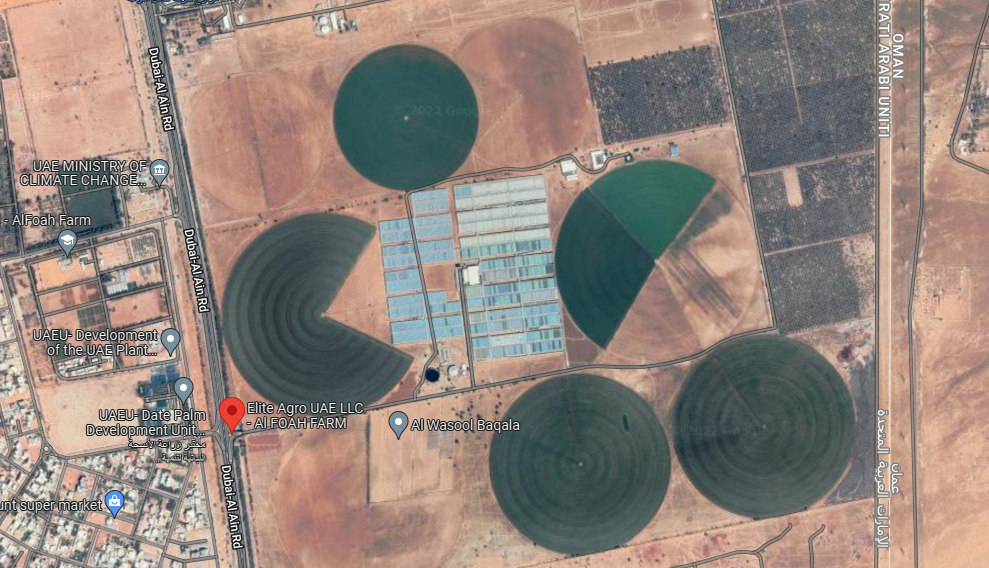
"Berries are fascinating because they have such a short shelf life, but they have become very popular with consumers in recent years," said Ian Summerfield, managing director of Elite Agro. "Location is our strength. You can't get much fresher than that."
"We operate something called the triple two policy. It takes less than two hours to take the berries from harvest to cold storage, only two hands touch the berries: the picker and the consumer, and we store all our products at 2°C to keep them fresh.
Large greenhouses equipped with water cooling systems house thousands of plants and bushes where berries are in full bloom during their season. The blueberries are usually harvested from January to May and the raspberries and blackberries from October to April.

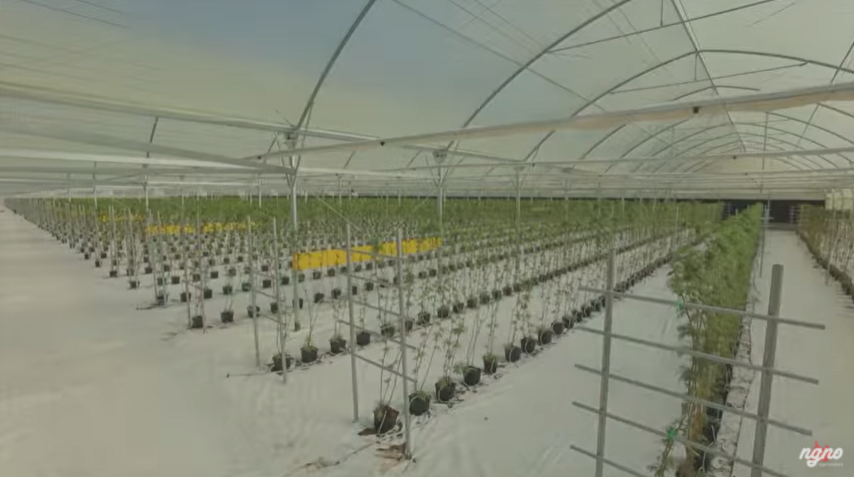


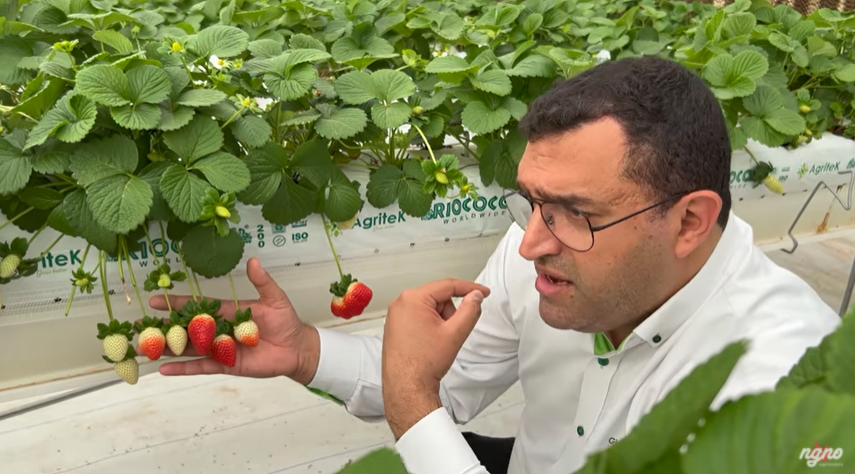
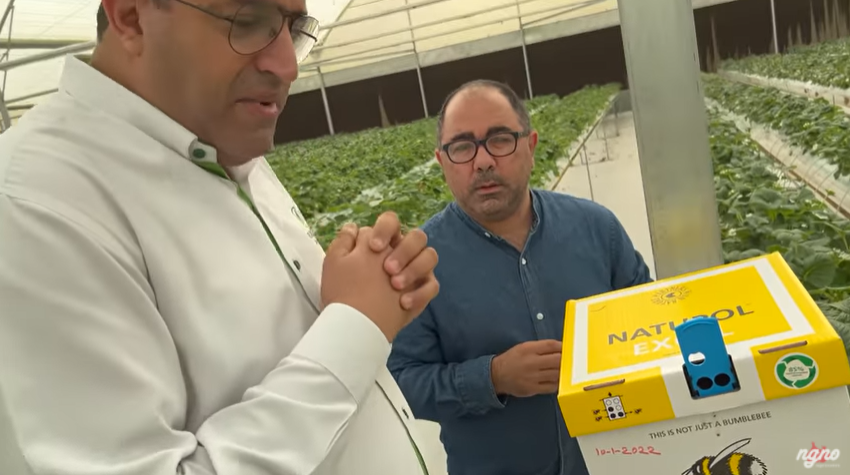
Twenty greenhouses dedicated to blueberries production cover a total area of 12 hectares, with an average of 5,400 plants of blueberry per hectare. Raspberry and blackberries production is on a smaller scale, with a total area of 1.8 hectares and 1.2 hectares, respectively.
The farm is home to four premium varieties of blueberries: Dazzle, Eureka, Eureka Sunrise and First blush. The plants come from an Australian breeding program called Mountain Blue Orchard. In terms of flavour profile, Summerfield said the blueberriess have a "sweet but strong flavour, are bigger than most and have a crunchy texture. We had to find berries that could withstand this climate but still give a great burst of flavour," he said.
"In 2017 we signed an exclusive agreement with Mountain Blue Orchard because we found that these varieties would be the best for this market both for their flavour, texture and size and for the growing conditions we had. We are the largest and only growers of blueberriesin the UAE and are the only people licensed to grow these berry varieties in the Middle East."
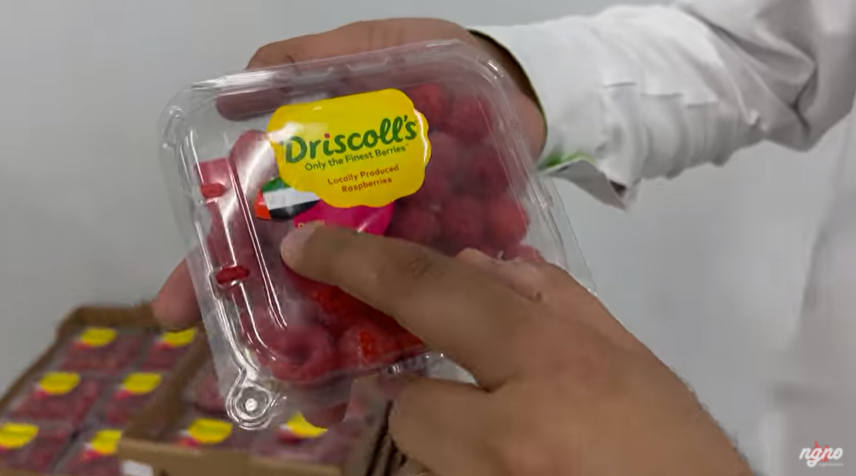
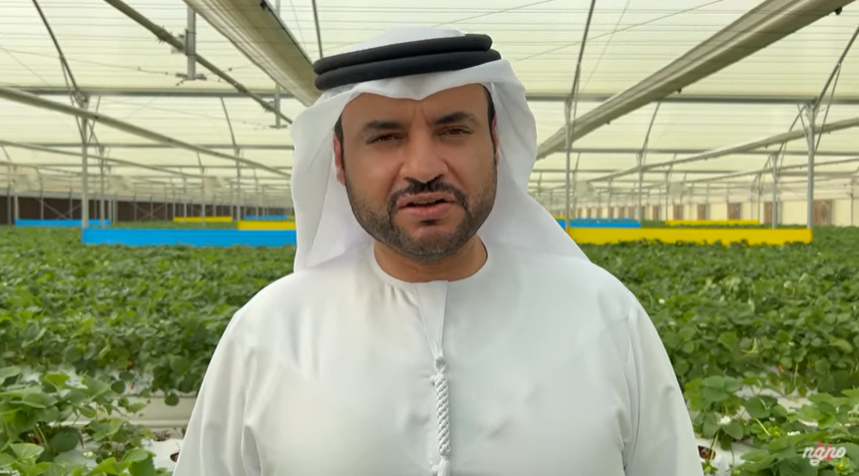
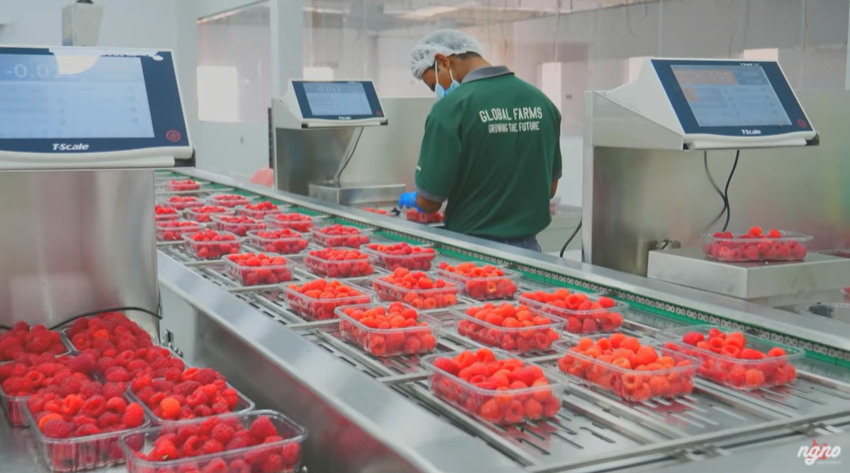
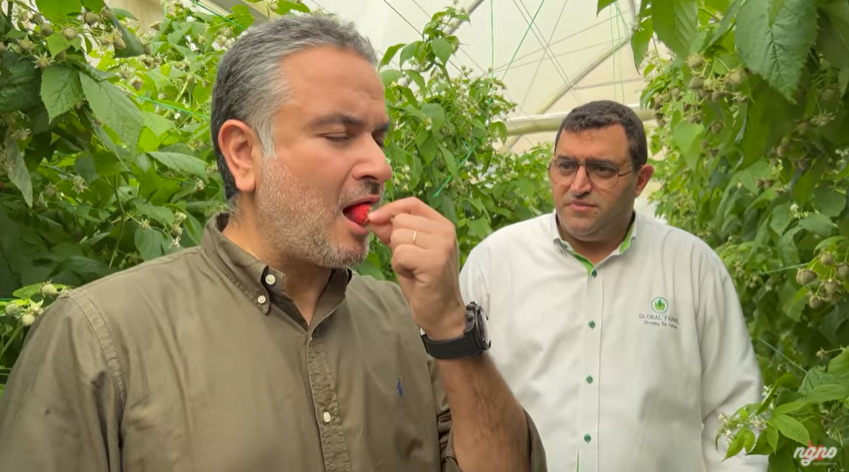
During the harvest, blueberriesare collected three times a week and reach the shelves of shops within 24 hours. Depending on where you buy it, a 500g basket of blueberriesElite can cost between 30 and 40 dirhams.
Each year, the farm produces about 300 tons of blueberries, 70 tons of raspberries and 30 tons of blackberries on dozens of acres of greenhouse space. In the coming years, Summerfield said the farm will expand its blueberries cultivation by 13 hectares, meaning that by 2026 it will produce about 700 tons of blueberries annually.
"As the first producer of blueberriesin the country, we had incredible success in our debut year of 2020, with production doubling after just one year. Looking ahead, we will soon quadruple our production capacity, which is a testament to how popular our quality home-grown blueberrieshave become. This has been made possible through the use of revolutionary technology, our state-of-the-art infrastructure and smart growing techniques in our greenhouses, enabling the production of the highest quality, freshest and most reliable crop," commented Ian Summerfield, Managing Director of Elite Agro.
The blueberrieshave very specific pH requirements, so the plants are grown in pots with coco peat, made from coconut shells, and perlite, a natural mineral. A drip system, which distributes a combination of water and fertiliser, is used for each plant and receives about 3.5 litres of water per day in the hot summer months and only one litre during the cooler winter season.
Forpollination, each flower of the plant must be visited by a bee between 18 and 23 times per season, and each plant has about 1600 flowers. To keep pests at bay, the farm also introduces insect predators to kill unwanted insects as an alternative to using harmful and expensive pesticides. Summerfield said the biggest pest is a tiny insect called thrips and they bring in beetles to kill them.
Spread over 570 hectares of land, the farm also produces peppers, tomatoes, cucumbers and potatoes.












